
|
|
|
|
 |
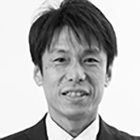 |
| WORKSHOP 5 |
|
 |
| . |
|
|
Hiroki Ago
Kyushu University, Japan
Invited – Workshop 5: Advances in hBN growth, characterization and device integration
Professor of Global Innovation Center (GIC), Kyushu Univeristy
Education: Department of Molecular and Material Sciences , Interdisciplinary Graduate School of Engineering Sciences
Cross-appointment fellow: National Institute of Advanced Industrial Science and Technology (AIST), Tsukuba
|
|
|
|
|
 |
| INDUSTRIAL FORUM |
|
 |
| . |
|
|
Rezal Khairi Ahmad
NanoMalaysia Berhad, Malaysia
Invited - Industrial Forum
Dr. Rezal Khairi Ahmad was appointed as the Chief Operating Officer of NanoMalaysia in June 2012. As NanoMalaysia first employee, he crafted the company structure, developed business model and corporate positioning strategy relative to like-minded government agencies and relevant industries In February 2013, Dr Rezal’s appointment was upgraded to Chief Executive Officer.
|
|
|
|
|
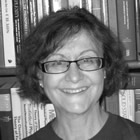 |
| KEYNOTE |
|
 |
| . |
|
|
Eva Andrei
Rutgers University, USA
Keynote – Plenary Session
Eva Andrei is an experimental condensed matter physicist recognized for her work on low dimensional electron systems, including two-dimensional electrons on helium, magnetically induced Wigner crystal in semiconductor heterojunctions and vortices in superconductors. She is known particularly for her ground-breaking work on the electronic properties of graphene, a one-atom thick membrane of crystalline carbon with extraordinary electronic properties stemming from charge carriers that behave like ultra-relativistic particles.
|
|
|
|
|
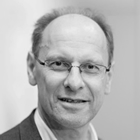 |
| INDUSTRIAL FORUM |
|
 |
| . |
|
|
Gerd Bacher
University of Duisburg-Essen, Germany
Invited - Industrial Forum
Gerd Bacher studied physics and received his PhD at the University of Stuttgart, Germany. He continued his career as senior scientist at Würzburg University and joined Tokyo Institute of Technology, Japan, as a guest professor 1996/1997. In 2003, Gerd Bacher got a full professorship for electronic materials and devices at the faculty of engineering at the University of Duisburg-Essen, where he co-founded the center of nanointegration (CENIDE) and established the studying program NanoEngineering. His research activities cover nanomaterials and nanodevices for optoelectronic, electronic and spintronic applications, with a main focus on 2D materials and nanocrystals. He published > 250 scientific papers, delivered more than 80 invited talks, and acts as a reviewer for numerous scientific journals and funding agencies.
|
|
|
|
|
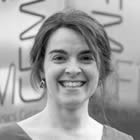 |
| WORKSHOP 6 |
|
 |
| . |
|
|
Sara Barja
UPV/EHU, Spain
Invited – Workshop 6: Advanced Characterization of 2DM and heterostructures
Sara Barja obtained her PhD degree in Physics in 2012 at the Universidad Autónoma de Madrid (Spain) where she studied the electronic properties of graphene on metallic substrates. In 2013 she was awarded with the IOF Marie Curie Action at the Lawrence Berkeley National Laboratory and the Max Planck Institute for Solid State Research in Stuttgart, where she expanded her scanning probe microscopy studies to single layers of transition metal dichalcogenide materials (TMDs). Currently, she is a Ramón y Cajal Fellow at the Centro de Física de Materiales in San Sebastian, Spain, where she leads the research line 2D for photo- and electro- catalysis. In 2019, we obtained the Hipatia prize for young talent in Science.
|
|
|
|
|
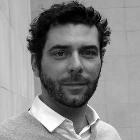 |
| WORKSHOP 5 |
|
 |
| . |
|
|
Julien Barjon
Université de Versailles St-Quentin-En-Yvelines, France
Invited – Workshop 5: Advances in hBN growth, characterization and device integration
Julien Barjon was awarded a PhD degree from Grenoble Institute of Technology on electron-beam pumped lasers made of AlGaN semiconductors in 2002. He is an associate professor at Université de Versailles St Quentin en Yveline and co-leader of the Diamond for Electronics research group. His researches focus on the physical properties of wide bandgap semiconductors and their nanostructures. He is at the origin of the nano-cathodoluminescence instrument in Versailles, which has been decisive in evidencing low dimensionality effects in 2D boron nitride. He has authored over 100 peer-reviewed publications.
|
|
|
|
|
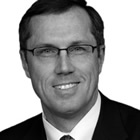 |
| INDUSTRIAL FORUM |
|
 |
| . |
|
|
Terrance Barkan
The Graphene Council, USA
Invited - Industrial Forum
For more than 25 years, Terrance Barkan CAE has been building international trade and professional associations on a global basis. His international management career has taken him to more than 60 countries on 6 continents around the world on association strategy development projects. He has served as the Executive Director for a number global and multinational organizations and was the founder of the very first truly global international association management company. Today, he focuses exclusively on helping associations build international growth strategies and business plans. As an international association specialist, he has accumulated a significant body of knowledge and experience in the not-for-profit sector. He has supported the creation of new volunteer organizations, guided existing organizations, advised volunteer leadership on governance and strategy, and facilitated alliances and mergers, all with a creative and pro-active approach to client mandates.
|
|
|
|
|
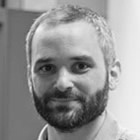 |
| INVITED |
|
 |
| . |
|
|
Stéphane Berciaud
IPCMS / CNRS, France
Invited – Plenary Session
Stéphane Berciaud is professor at the University of Strasbourg (Unistra) since 2016 and junior member of the Institut Universitaire de France (IUF). His expertise is in the optical spectroscopy of low-dimensional systems. After a PhD on ultrasensitive optical detection and spectroscopy of individual nano-objects at Université de Bordeaux, he contributed - as postdoctoral scientist at Columbia University (US) then as assistant professor at Unistra- to pioneering works on exciton dynamics, inelastic light-scattering and energy transfer in carbon nanotubes, graphene and semiconductor quantum dots. Since 2013, SB leads a research team at IPCMS that focuses on 2D materials and related “van der Waals heterostructures”. His current interests include optical spectroscopy and opto-electronics in 2D semiconductors and 2D semiconductor/graphene heterostructures as well as opto-electro-mechanics in nano-resonators made from suspended 2D materials. SB is a fellow of the Unistra Institute for Advanced Study (USIAS) and he received the Bronze Medal of CNRS in 2016.
|
|
|
|
|
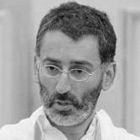 |
| WORKSHOP 4 |
|
 |
| . |
|
|
Lapo Bogani
University of Oxford, UK
Invited – Workshop 4: Topological and Exotic Physics in van Der Waals Heterostructures
Prof. Lapo Bogani received his MSc and PhD from the University of Florence (Italy) in 2006. In 2006 he was awarded an individually-driven Marie Curie Fellowship at CNRS Grenoble. He later moved to Germany in 2009 where he was awarded the Alexander von Humboldt Research Fellowship and the Sofja Kovalevskaja Award, in 2010. In 2015 he joined the Department of Materials, at the University of Oxford, with an ERC starting Grant, where he is currently developing an ERC Consolidator Grant.
|
|
|
|
|
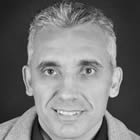 |
| INDUSTRIAL FORUM |
|
 |
| . |
|
|
Francesco Bonaccorso
BeDimensional, Italy
Invited - Industrial Forum
Francesco Bonaccorso is the Scientific Director of BeDimensional SpA and Visiting Scientist at the Istituto Italiano di Tecnologia. He gained the PhD from the University of Messina after working at the Italian National Research Council, the University of Cambridge and the University of Vanderbilt. In 2009 he was awarded a Royal Society Newton International Fellowship at Cambridge University, and a Fellowship at Hughes Hall, Cambridge, obtaining a MA. He was responsible in defining the ten years scientific and technological roadmap for the Graphene Flagship. He is now Deputy of the Innovation of the Flagship. He was featured as 2016 Emerging Investigator by J.Mater.Chem.A and in 2019 by ChemPlusChem. His research interests encompass both the fundamental understanding and solution processing of novel nanomaterials and their technological applications. He authored/co-authored more than 120 publications and 12 patents.
|
|
|
|
|
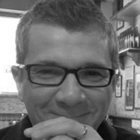 |
| INDUSTRIAL FORUM |
|
 |
| . |
|
|
Paolo Bondavalli
Thales Research & Technology, France
Invited - Industrial Forum
Dr. Paolo Bondavalli is in charge of the transverse topic on nanomaterials at Thales Research and Technology. Presently his work is focused on discovering potentialities for new 2D materials for the next generation of electronics, energy storage devices, memristor, electromagnetic shielding, quantum computing. Dr Bondavalli has received his Hdr in 2011, at Paris-Sud on a work on "devices based on random network of carbon nanotubes". During the last five years, he has participated, also as coordinator, in several EU projects (concerning CNTs, graphene, spintronics, energy) and ANR projects. He is involved in the Graphene Flagship initiative. He recently issued a book on Graphene ("Graphene and Related Materials: Properties and Applications" Ed Elsevier, pp 192, 2017).
|
|
|
|
|
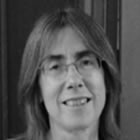 |
| WORKSHOP 4 |
|
 |
| . |
|
|
Helene Bouchiat
Universite Paris SUD / CNRS, France
Invited – Workshop 4: Topological and Exotic Physics in van Der Waals Heterostructures
Hélène Bouchiat:
CNRS researcher, member of French Academy of Science
Mesoscopic Physics Group Laboratoire de Physique des Solides Orsay
Main interests:
Investigation of quantum transport in a great variety of systems: 2D electron gases, graphene mono and bilayers, metallic nanowires, carbon nanotubes, topological insulators, etc... A large number of original experimental tools are developed in our group, including nanofabrication, magnetisation, capacitance as well as noise and high frequency measurements (up to 100 GHz) at very low temperature.
|
|
|
|
|
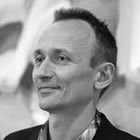 |
| WORKSHOP 1 |
|
 |
| . |
|
|
Peter Bøggild
DTU Physics, Denmark
Invited – Workshop 1: Large scale growth of 2DM and applications
Peter Bøggild received his PhD degree in low temperature solid state physics from Copenhagen University in 1998, and has since worked at the Technical University of Denmark, on areas such as nanomanipulation, carbon nanotubes, micro four point metrology, corrosion, in-situ-TEM / NEMS and sensors but has the past five years focused his research group on 2D materials research and engineering. He was appointed a full professor at DTU Nanotech in 2013.
|
|
|
|
|
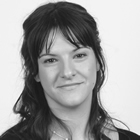 |
| INVITED |
|
 |
| . |
|
|
Cinzia Casiraghi
University of Manchester, UK
Invited – Plenary Session
Dr Cinzia Casiraghi received her BSc and MSc in Nuclear Engineering from Politecnico di Milano (Italy) and her PhD in Electrical Engineering from the University of Cambridge (UK) in 2006. In 2005 she was awarded with an Ernest Oppenheimer Early Career Research Fellowship, followed by the Alexander von Humboldt Research Fellowship in 2007 and the prestigious Sofja Kovalevskaja Award, won in 2008. This Prize is given to young, cutting-edge researchers, providing them with risk capital to pursue innovative projects and establish their own lab at a very early stage in their careers. This allowed her to become Junior Group Leader at the Physics Department of the Free University Berlin (Germany). In 2010 she joined the School of Chemistry, at the University of Manchester (UK). She is also member of the Athena Swan committee of the School of Chemistry.
|
|
|
|
|
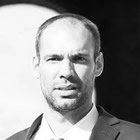 |
| INDUSTRIAL FORUM |
|
 |
| . |
|
|
Marc Chaigneau
HORIBA FRANCE SAS, France
Invited - Industrial Forum
AFM-Raman Product Manager Oversee development, applications, worldwide marketing and sales of Raman spectroscopy products coupled with Scanning Probe Microscopy (SPM) for Tip Enhanced Raman Spectroscopy (TERS). Survey new technologies and suggest ideas for new developments that could give us an edge on the market. Support Sales teams worldwide. Evaluate client special requirements feasibility, cost and time frame with R&D in our French and US offices. Business development including marketing, web advertising and sales. Development of technical documents to help Sales People quote, calculate specifications, answer bid requests etc...
|
|
|
|
|
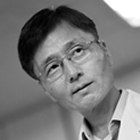 |
| INVITED |
|
 |
| . |
|
|
Suk-Ho Choi
Kyung Hee University, South Korea
Invited – Plenary Session
Suk-Ho Choi is a professor in Dept. of Applied Physics at Kyung Hee Univ. (KHU). He received BS from Seoul National Univ. and MS/PhD from KAIST in Korea. He spent sabbatical years at NIST in USA, Australian National Univ., and Samsung Advanced Institute of Technology. He worked as a director at Institute of Natural Sciences at KHU for 10 years, and was appointed as Fellow Professor from 2009. He has established two major areas of research, one on the optical and electrical properties of low-dimensional nanostructures such as quantum dots/nanowires/graphene/2D-related materials, and the other on their applications in optoelectronic devices. He has published over 220 papers.
|
|
|
|
|
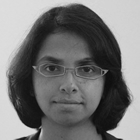 |
| INDUSTRIAL FORUM |
|
 |
| . |
|
|
Tanushree H. Choudhury
Pennsylvania State University, USA
Invited - Industrial Forum
Tanushree H Choudhury received her PhD in Materials Science from Materials Research Centre, Indian Institute of Science, Bengaluru, in 2013. Her thesis work focused on the development of thermally stable anodized zirconia nanostructures. In 2014, she joined the Department of Materials Science and Engineering, Pennsylvania State University as a postdoctoral researcher in Prof. Joan Redwing’s lab to work on chemical vapor deposition of transition metal dichalcogenides (TMDs). In 2016, she was promoted to Assistant Research Professor in the 2D Crystal Consortium-Materials Innovation Platform at Penn State where she works on wafer scale growth of epitaxial TMDs using metal organic chemical vapor deposition. Her research focuses on understanding fundamental mechanisms of crystal growth and epitaxy of TMDs and the effect of defects on nucleation of TMDs.
|
|
|
|
|
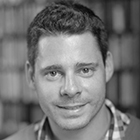 |
| INDUSTRIAL FORUM |
|
 |
| . |
|
|
Matt Cole
University of Bath, UK
Invited - Industrial Forum
Dr Cole is a University Lecturer (Ass. Prof) investigating the heterogeneous integration of chemical vapour deposited aligned nanomaterials in nanoscale vacuum electronics devices in the Department of Electronic & Electrical Engineering, University of Bath. He recieved an MEng in Engineering Science from Oxford University and a PhD in Electronic Engineering from Cambridge University. He is a member of the Center for Advanced Sensor Technologies (CAST) and the Centre for Nanoscience & Nanotechnology.
|
|
|
|
|
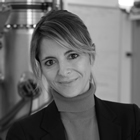 |
| INDUSTRIAL FORUM |
|
 |
| . |
|
|
Camilla Coletti
IIT, Italy
Invited - Industrial Forum
Camilla Coletti is the coordinator of the Graphene Labs of the Istituto Italiano di Tecnologia (IIT) ( https://graphene.iit.it) and leads the research line 2D Materials Engineering ( https://www.iit.it/research/lines/2d-materials-engineering). She received her PhD degree from the University of South Florida in 2007 and her MS degree from the University of Perugia in 2004 (with honors, both in Electrical Engineering). She is expert in the synthesis of highly-crystalline 2D materials via CVD and in the investigation of their electronic, chemical and structural properties via conventional surface science techniques. Overall, she is author of about 100 peer-reviewed publications, authored 4 book chapters, edited 1 book, filed several international patents (holds 3) and delivered more than 40 invited talks at international conferences. |
|
|
|
|
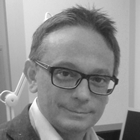 |
| INVITED |
|
 |
| . |
|
|
Aldo Di Carlo
University of Rome "Tor Vergata", Italy
Invited – Plenary Session
Aldo Di Carlo is Full Professor of Optoelectronics and Nanoelectronics at the University of Rome "Tor Vergata", Department of Electronics Engineering. Leader of the Nano&Optoelectronic research group - http://www.optolab.uniroma.it at the Department of Electronic Engineering and member of the IEEE Electron Devices Society. His research activity concerns the study of electronic and optical properties of nanostructured devices, their analysis, optimization and technology. The development of the non-equilibrium theory for the microscopic description of the transport process in organic/inorganic devices and thermal processes at nanoscale has been the subject of invited talks at international conferences and University seminars. In the last years his researches have focussed on the study and fabrication of organic devices. Research activities in carbon nanotubes have been quite successful leading to the realization cold cathode vacuum triode based on CNT cathode for THz generation. The research activity of organic optoelectronic devices has been consider of excellence and the Lazio Region has sponsored this activity funding the "Polo Solare Organico della Regione Lazio", namely the Center for Hybrid and Organic Solar Energy (CHOSE) where Prof. A. Di Carlo is co-director. The aim of the Center is the study and development of organic photovoltaic cells and their industrialization. Prof. Di Carlo has organized, together with Prof. Lugli, IEEE 2004 Nanotechnology Conference in Munich. Prof. Di Carlo is author/co-author of more than 300 scientific publications in international journals, several reviews on electronic and optoelectronic devices, 7 patents, several book chapters and co-author of two books (in Italian language) and has been invited to more than 40 invited talk at international conferences. Prof. Di Carlo has an h-factor = 38. The results of his research have been used to realize 5 spin-off companies dealing with ICT and Energy technologies
|
|
|
|
|
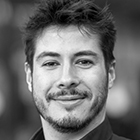 |
| WORKSHOP 4 |
|
 |
| . |
|
|
Marcos H. Diniz Guimaraes
University of Groningen, The Netherlands
Invited – Workshop 4: Topological and Exotic Physics in van Der Waals Heterostructures
Marcos H. D. Guimarães studied Physics at the Federal University of Minas Gerais in Brazil, where he obtained a Bachelor and Master degrees in Physics. He received his PhD degree in 2015 from the University of Groningen, The Netherlands, working on “Spin and Charge Transport in Graphene Devices” supervised by Prof. Bart van Wees. After been awarded two personal research grants, the NWO Rubicon from the Netherlands, and a Kavli Institute Fellowship from the USA, he moved to Cornell University, USA, where he expanded his research focus to other two-dimensional materials and studied them using a variety of optical and electrical techniques. In 2017 Marcos received a NWO VENI grant and returned to the Netherlands where he further extended his experimental background studying ultrafast optics in two-dimensional materials at the Eindhoven University of Technology. In February 2019 he joined the Zernike Institute for Advanced Materials as an Assistant Professor in the group of Physics of Nanodevices. His research focuses on the magnetic and spintronic properties of two-dimensional materials and metallic thin films studied by magneto-optical and electrical means.
|
|
|
|
|
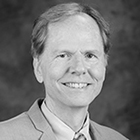 |
| WORKSHOP 5 |
|
 |
| . |
|
|
James H. Edgar
Kansas State University, USA
Invited – Workshop 5: Advances in hBN growth, characterization and device integration
James H. Edgar is University Distinguished Professor and Tom H. Barrett University Faculty Chair in the Tim Taylor Department of Chemical Engineering at Kansas State University. Edgar applies chemical engineering principles to improve the quality of semiconductor materials, to enable new types of electronic and optoelectronic devices. His most recent research is on the solution crystal growth of hexagonal boron nitride. He is currently serving as a manager of the Electronic and Photonic Materials program at the National Science Foundation.
|
|
|
|
|
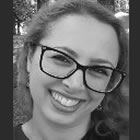 |
| INDUSTRIAL FORUM |
|
 |
| . |
|
|
Samaneh Etemadi
Abalonyx, Norway
Invited - Industrial Forum
|
|
|
|
|
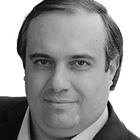 |
| INDUSTRIAL FORUM |
|
 |
| . |
|
|
Andrea Ferrari
Cambridge Graphene Centre, University of Cambridge, UK
Keynote - Industrial Forum
Andrea C. Ferrari earned a PhD in electrical engineering from Cambridge University, after a Laurea in nuclear engineering from Politecnico di Milano, Italy. He is Professor of Nanotechnology and the Director of the Cambridge Graphene Centre and of the EPSRC Centre for Doctoral Training in Graphene Technology. He is Fellow of Pembroke College, the American Physical Society, the Institute of Physics and the Materials Research Society. His research interests include nanomaterials growth, modelling, characterization, and devices. He was awarded the Royal Society Brian Mercer Award for Innovation, the Marie Curie Excellence Award, the Philip Leverhulme Prize, The EU-40 Materials Prize, The Royal Society Wolfson Research Merit Award. He is also the Chairman of the Executive Board of the EU Graphene Flagship.
|
|
|
|
|
 |
| WORKSHOP 6 |
|
 |
| . |
|
|
Pascal Gehring
UClouvain, Belgium
Invited – Workshop 6: Advanced Characterization of 2DM and heterostructures
|
|
|
|
|
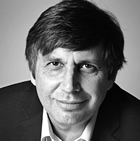 |
| PLENARY |
|
 |
| . |
|
|
Andre Geim
University of Manchester, UK
Plenary Talk
Sir Andre Geim is Regius Professor at the University of Manchester. He was awarded the 2010 Nobel Prize for his groundbreaking work on graphene. He has also received numerous international awards and distinctions, including medals from the Royal Society and the US National Academy of Sciences, and holds honorary doctorates and professorships from many countries and universities. Thomson-Reuters repeatedly named him among the world’s most active scientists and attributed to him three new research fronts – diamagnetic levitation, gecko tape and graphene. More than thirty of his papers have been cited >1,000 times with six of them >10,000 times. He was awarded the 2000 Ig Nobel prize for his work on levitation, becoming the first and only recipient of both Nobel and Ig Nobel Prizes.
|
|
|
|
|
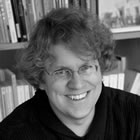 |
| WORKSHOP 3 |
|
 |
| . |
|
|
Mark-Oliver Goerbig
CNRS, Université Paris-Sud, France
Invited – Workshop 3: Theory of 2D Materials and Devices Simulation
Mark Oliver Goerbig is a CNRS Research Director in the Theory Group of Laboratoire de Physique des Solides, Université Paris-Saclay. After a PhD on the fractional quantum Hall effect in 2004, his research is oriented towards graphene, twodimensional semiconductors and topological materials. He is mainly interested in the experimental signatures, e.g. in magnetooptical spectroscopy and transport, of the relativistic and topological properties of novel materials as well as in the bulk-edge correspondence of topological quantum matter.
|
|
|
|
|
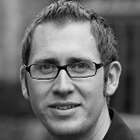 |
| WORKSHOP 5 |
|
 |
| . |
|
|
Stephan Hofmann
University of Cambridge, UK
Invited – Workshop 5: Advances in hBN growth, characterization and device integration
2019 – PI, EPSRC “Expanding the Environmental Frontiers of Operando Metrology for Advanced Device Materials Development”
2019 Divisional research theme leader “Functional Nano and Layered Materials”
2016 – Professor of Nanotechnology, Department of Engineering, University of Cambridge
2014 Co-Director EPSRC Centre for Doctoral Training in Sustainable and Functional Nano
2014 ACS Journal of Physical Chemistry C Lectureship Award (US)
2013 – PI, EPSRC “Manufacturing the Future” grant: CVD enabled Graphene Technology and Devices
2012-2016 Reader, Department of Engineering, University of Cambridge
2011 – PI, ERC grant “InSituNano”: In-situ metrology for the controlled growth and interfacing of nanomaterials
2008-2012 University Lecturer, Department of Engineering, University of Cambridge
2007 Fonda-Fasella Award of Elettra Synchrotron (Italy)
2006-2010 Dorothy Hodgkin Fellow, Royal Society (UK)
2004-2008 Junior Research Fellow, Peterhouse, Cambridge (UK)
2004 PhD, University of Cambridge (UK) – thesis on low temperature growth of high aspect ratio nanostructures
2000 Physik Diplom Univ., Technische Universität München (Germany) – thesis on nitrogen doping of tetrahedral amorphous carbon
|
|
|
|
|
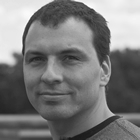 |
| WORKSHOP 5 |
|
 |
| . |
|
|
Cedric Huyghebaert
IMEC, Belgium
Invited – Workshop 5: Advances in hBN growth, characterization and device integration
Cedric Huyghebaert is currently leading the nano-applications and – material engineering (NAME) group at imec dealing with the integration of nano materials as CNT and graphene and graphene related materials in functional applications. He is deputy of the wafer scale integration work package in the Graphene Flagship. He started as a junior researcher in the materials and component analyses group at imec. He studied the oxygen bean interactions during sputtering profiling of semiconductors. He received his PhD in Physics in 2006 at the KULeuven in Belgium. In 2005 he joined imecs pilot line as an integration engineer, especially dealing with the process contamination control. He was part of the packaging group from 2008 to 2010, working as a senior integration engineer dealing with the journey of bringing 3D-stacked IC integration from lab to fab.
|
|
|
|
|
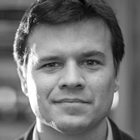 |
| PLENARY |
|
 |
| . |
|
|
Pablo Jarillo-Herrero
MIT, USA
Plenary Talk
Professor Jarillo-Herrero's research interests lie in the area of experimental condensed matter physics, in particular quantum electronic transport and optoelectronics in novel low dimensional materials, such as graphene and topological insulators (TIs). Pablo Jarillo-Herrero joined MIT as an assistant professor of physics in January 2008. He received his M.Sc. in physics from the University of Valencia, Spain, in 1999. Then he spent two years at the University of California in San Diego, where he received a second M.Sc. degree before going to the Delft University of Technology in The Netherlands, where he earned his Ph.D. in 2005. After a one-year postdoc in Delft, he moved to Columbia University, where he worked as a NanoResearch Initiative Fellow. His awards include the Spanish Royal Society Young Investigator Award (2007), an NSF Career Award (2008), an Alfred P. Sloan Fellowship (2009), a David and Lucile Packard Fellowship (2009), the IUPAP Young Scientist Prize in Semiconductor Physics (2010), a DOE Early Career Award (2011), a Presidential Early Career Award for Scientists and Engineers (PECASE, 2012), and an ONR Young Investigator Award (2013).
|
|
|
|
|
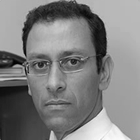 |
| INVITED |
|
 |
| . |
|
|
Ado Jorio
Universidade Federal de Minas Gerais, Brazil
Invited – Plenary Session
Full Professor at the Physics Department and Member of the Brazilian Academy of Sciences. PhD from the UFMG, Postdoctoral fellow at Massachusetts Institute of Technology - MIT / USA, Director of Technology and Information in INMETRO, and Visiting Professor at ETH Zurich. Coordinator of the Brazilian Network for Research and Instrumentation in Optical Nanospectroscopy and considered one of "The World’s Most Influential Scientific Minds", according to the Thomson Reuters.
|
|
|
|
|
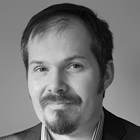 |
| WORKSHOP 1 |
|
 |
| . |
|
|
Alex Jouvray
Aixtron, UK
Invited – Workshop 1: Large scale growth of 2DM and applications
Dr Alex Jouvray is the Programme Manager for AIXTRON’s Nanotechnologies department. He received his PhD in Computational Fluid Dynamics from Warwick University in 2004. Over the years he has gained significant experience of managing the development of new products and systems for a range of industrial and scientific applications such as Fuel cells, Automotive, Vibration Test Systems and In-Situ Monitoring tools for the Semiconductor industry. Since 2012, he has been focused on the development of AIXTRON’s systems for the growth of Carbon Nanotubes, Graphene and other 2D materials. Over his career he has been involved in several publicly funded projects and is the author / co-author of several papers and patents.
|
|
|
|
|
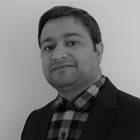 |
| WORKSHOP 1 |
|
 |
| . |
|
|
Satender Kataria
RWTH Aachen University, Germany
Invited – Workshop 1: Large scale growth of 2DM and applications
|
|
|
|
|
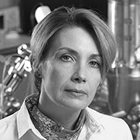 |
| INVITED |
|
 |
| . |
|
|
Olga Kazakova
NPL, UK
Invited – Plenary Session
Olga Kazakova is an NPL Fellow in Quantum Materials and Sensors and a Fellow of Institute of Physics. She joined NPL in 2002 after working as an Assistant Professor at the Chalmers University of Technology (Gothenburg, Sweden). She is an author of about 170 peer-refereed publications and presented about 70 invited talks and seminars.
Olga’s main interest is quantitative functional (electronic, thermal, magnetic, etc.) nanoscale imaging of graphene and 2D Materials as well as development of graphene sensors for environmental and Life Science applications.
She was a recipient of the numerous national and international awards, including Intel European Research and Innovation Award (2008), NPL Rayleigh Award and Serco Global Pulse Award (2011). She has a vast editorial and conference organisation experience.
|
|
|
|
|
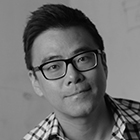 |
| INDUSTRIAL FORUM |
|
 |
| . |
|
|
Jeehwan Kim
MIT, USA
Keynote - Industrial Forum
Dr. Jeehwan Kim is an Associate Professor of Massachusetts Institute of Technology. He joined the Mechanical Engineering Department at Massachusetts Institute of Technology as an Assistant Professor of Mechanical Engineering in Fall 2015. He received his BS from Hongik University, his MS from Seoul National University, and his PhD from UCLA in 2008, all of them in Materials Science. Before joining MIT, he was a Research Staff Member at IBM T.J. Watson Research Center in Yorktown Heights, NY since 2008, where he has led multiple projects pertaining to thin film solar cells, graphene electronics, and next generation CMOS. Many of his patents in photovoltaic technologies have been licensed and transferred to solar companies. Prof. Kim is a recipient of multiple IBM high value invention achievement awards. In 2012, he was appointed a “Master Inventor” of IBM in recognition of his active intellectual property generation and commercialization of his research. He is an inventor of 210 issued/pending US patents and an author of 40 farticles in journals. His research covers topics ranging from basic material physics/mechanics to scalable manufacturing of electronic/photonic/photovoltaic devices.
|
|
|
|
|
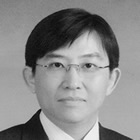 |
| WORKSHOP 2 |
|
 |
| . |
|
|
Sang Ouk Kim
KAIST, South Korea
Invited – Workshop 2: Chemistry of 2DM, Medical and Energy Applications
Prof. Sang Ouk Kim is a Professor in the Department of Materials Science & Engineering, Associate Dean for the College of Engineering of KAIST, South Korea and the director of National Creative Research Initiative Center for Multi-Dimensional Directed Nanoscale Assembly and Graphene Liquid Crystalline Fiber Center. Prof. Kim has published more than 230 SCI journal papers and delivered more than 400 invited presentations over worldwide. Prof. Kim is serving as an associate editor of Energy Storage Materials (elsevier) and editorial board members for many scientific journals. His research group is actively researching on the nanoscale assembly & chemical modification of polymers, nanoscale materials, graphene and other 2D materials.
|
|
|
|
|
 |
| INDUSTRIAL FORUM |
|
 |
| . |
|
|
Frank Koppens
ICREA/ICFO , Spain
Invited - Industrial Forum
Prof. Koppens is the leader of the nano opto-electronics research group at ICFO, focussing mostly on research and technology development of graphene and 2d materials. Koppens is co-leader of the optoelectronics activities in the European Graphene flagship program, with total funding of one billion Euro (for 10 years).
|
|
|
|
|
 |
| WORKSHOP 5 |
|
 |
| . |
|
|
Frank Koppens
ICREA/ICFO, Spain
Invited – Workshop 5: Advances in hBN growth, characterization and device integration
Prof. Koppens is the leader of the nano opto-electronics research group at ICFO, focussing mostly on research and technology development of graphene and 2d materials. Koppens is co-leader of the optoelectronics activities in the European Graphene flagship program, with total funding of one billion Euro (for 10 years).
|
|
|
|
|
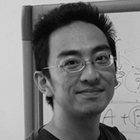 |
| WORKSHOP 3 |
|
 |
| . |
|
|
Mikito Koshino
Osaka University, Japan
Invited – Workshop 3: Theory of 2D Materials and Devices Simulation
Mikito Koshino received his Ph.D. degree from University of Tokyo, Japan in 2003. He was a research associate in Tokyo Institute of Technology from 2003 to 2010, and he was an associate professor in Tohoku University from 2010 to 2016. Since 2016, he has taught in Osaka University, where he is a professor in Department of physics.His current research is focused on the theoretical study on various physical properties of graphene and other 2D materials, and also covers the topological property of material
|
|
|
|
|
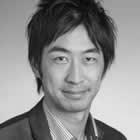 |
| WORKSHOP 4 |
|
 |
| . |
|
|
Hidekazu Kurebayashi
UCL, UK
Invited – Workshop 4: Topological and Exotic Physics in van Der Waals Heterostructures
Hidekazu Kurebayashi is an Associate Professor in Electronic and Electric Engineering at UCL. He also leads a spintronics group in the London Centre for Nanotechnology. His main interest is in spin-orbit phenomena and spin-wave physics in low-dimensional and low-symmetry materials in which he believes novel transport effects emerge.
|
|
|
|
|
 |
| INVITED |
|
 |
| . |
|
|
Mario Lanza
Soochow University, China
Invited – Plenary Session
Mario Lanza is a Full Professor at the Institute of Functional Nano & Soft Materials of Soochow University since September 2013. Dr. Lanza got his PhD in Electronics in 2010 at Universitat Autonoma de Barcelona. During the PhD he was a visiting scholar at The University of Manchester (UK) and Infineon Technologies (Germany). In 2010-2011 he did a postdoc at Peking University, and in 2012-2013 he was a Marie Curie fellow at Stanford University. Dr. Lanza has published over 100 research papers, including Science, Nature Electronics and IEDM, edited an entire book for Wiley-VCH, and registered four patents (one of them granted with 5.6 Million CNY). He is member of the advisory board of Advanced Electronic Materials (Wiley-VCH, Germany), Scientific Reports (Nature Publishing Group, UK), Nanotechnology (Institute of Physics, UK), Nano Futures (Institute of Physics, UK) and Crystal Research and Technology (Wiley-VCH, Germany), as well as guest editor of an special issue in Advanced Functional Materials (Wiley-VCH, Germany). He is an an active member of the technical committee of several world-class international conferences (including IEEE-IEDM, IEEE-IRPS and IEEE-IPFA). Prof. Lanza has received some of the most prestigious awards in his field, including the 2017 Young Investigator Award from Microelectronic Engineering (Elsevier), the 2015 Young 1000 Talent award, and the 2012 Marie Curie postdoctoral fellowship (among others), and in 2019 he was appointed as Distinguished Lecturer of the Electron Devices Society (IEEE-EDS). Currently he is leading a research group formed by 15-20 PhD students and postdocs, and together they investigate on the improvement of electronic devices using 2D materials, with special emphasis on two-dimensional (layered) dielectrics and memristors for non-volatile digital information storage and artificial intelligence computing systems.
|
|
|
|
|
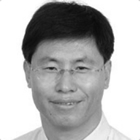 |
| INDUSTRIAL FORUM |
|
 |
| . |
|
|
Zhongfan Liu
Peking University, China
Keynote - Industrial Forum
Prof. Zhongfan Liu got his PhD in University of Tokyo in 1990. He is now the BOYA Chair Professor of Peking University in chemistry, the Director of Beijing Graphene Institute, and the Vice President of Chinese Chemical Society. His research interest focusses on low dimensional carbon materials, including the CVD growth of graphene and single-walled carbon nanotubes and their unique applications. Prof. Liu has published over 560 peer-reviewed articles and over 100 patents. His recent contributions to graphene areas include, superclean graphene, super graphene glass, graphene optical fiber and photochemical band structure engineering of graphene. The major academic awards he received include, National Natural Science Awards (2008, 2017), Chinese Chemical Society-AkzoNobel Chemical Science Award (2012), Baogang Outstanding Teacher Award (2012), the Lectureship Award of 2016 Colloid and Surface Chemistry Annual Meeting of Chemical Society of Japan, Beijing Municipal Excellent Teacher (2017), and the 2018 ACS Nano Lectureship Award. He was elected as the member of Chinese Academy of Sciences in 2011 and as one of the six outstanding scientists in Ten-Thousand-Talents Program in 2013. Prof. Liu is the Fellow of the Institute of Physics (UK, 2004), the Fellow of Royal Society of Chemistry (UK, 2014) and the Fellow of TWAS(2015).
|
|
|
|
|
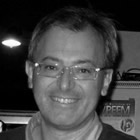 |
| WORKSHOP 6 |
|
 |
| . |
|
|
Andrea Locatelli
Elettra-Sincrotrone Trieste, Italy
Invited – Workshop 6: Advanced Characterization of 2DM and heterostructures
|
|
|
|
|
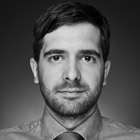 |
| INDUSTRIAL FORUM |
|
 |
| . |
|
|
Martin R. Lohe
Sixonia Tech GmbH, Germany
Invited - Industrial Forum
Martin is the CEO and co-founder of Sixonia Tech GmbH, a growing start-up manufacturing and selling a portfolio of large-flake, few-layer E-Graphenes (electrochemically exfoliated graphenes) and formulations, tailored to integrate seamlessly into downstream processes. Sixonia Tech currently generates revenues selling tailored E-Graphenes, custom formulations and R&D projects to DAX, EU, US & JP corporations, SMEs and institutes in various sectors based on own IP.
Martin finished his PhD in inorganic chemistry and worked as a post-doc on the application and up-scaled production of porous materials before shifting his research focus towards graphene and 2D materials. He has profound experience in the field of process development and optimization as well as up-scaling and commercializing inorganic specialty materials. In January 2015 he joined the group of Prof. Xinliang Feng at the Chair of Molecular Functional Materials, TU Dresden with the focus on upscaling the electrochemical exfoliation of graphene. In 2017 he started Sixonia Tech as a Spin-Off company from TU Dresden, which is focussing on upscaling and commercializing their functionalized and easily processable E-Graphenes
|
|
|
|
|
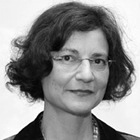 |
| WORKSHOP 5 |
|
 |
| . |
|
|
Annick Loiseau
ONERA, France
Invited – Workshop 5: Advances in hBN growth, characterization and device integration
Annick Loiseau leads the Research Group (GDR) on nanotubes and graphene, created by the National Scientific Research Center (CNRS) in 2009, created out of the GDR on nanotubes, at a national level in 1998 and then extended internationally in 2005. The objective: to promote exchanges and joint work between researchers in order to structure their research.
|
|
|
|
|
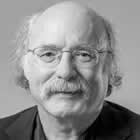 |
| PLENARY |
|
 |
| . |
|
|
F. Duncan M. Haldane
Princeton University, USA
Plenary Talk
|
|
|
|
|
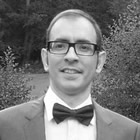 |
| INDUSTRIAL FORUM |
|
 |
| . |
|
|
Leonel Marques
Grapheal, France
Invited - Industrial Forum
Leonel Marques got an Engineering degree in biotechnology from University of Algarve and a PhD in Pharmacy from Nothingham University in 2011. His Thesis was on the chemical functionalization of nanoparticles for biomedical ultrasonic imaging and sensing. He then worked on protein biosensors using optical fibres. More recently he gained experience in graphene biosensors for diagnostics in several startups.
|
|
|
|
|
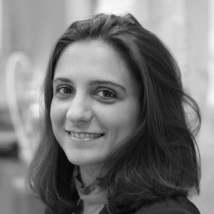 |
| WORKSHOP 1 |
|
 |
| . |
|
|
Cecilia Mattevi
Imperial College London, UK
Invited – Workshop 1: Large scale growth of 2DM and applications
Cecilia Mattevi is a Royal Society University Research Fellow in the Department of Materials at Imperial College London since October 1, 2012. Her research interests centre on science and engineering of novel 2D atomically thin semiconducting materials to enable applications in optoelectronics and energy storage. Mattevi’s research group focuses on the synthesis of these materials and tailoring thier properties, and on the fabrication of devices based on planar structures and on highly porous 3D hierarchical structures where a diverse range of assembly methods is employed.
|
|
|
|
|
 |
| WORKSHOP 4 |
|
 |
| . |
|
|
James McIver
Max Planck Institute for the Structure and Dynamics of Matter, CFEL, Germany
Invited – Workshop 4: Topological and Exotic Physics in van Der Waals Heterostructures
James McIver received his PhD from Harvard University in 2014 where he studied the nonlinear optical and optoelectronic properties of topological insulator surfaces. Afterwards, he joined the Max Planck Institute for the Structure and Dynamics of Matter (MPSD) as a Humboldt postdoctoral fellow. There, he developed ultrafast transport techniques to study topological Floquet-Bloch states in graphene. He now leads his own group at MPSD as part of the new “Center for Non-equilibrium Quantum Phenomena”—a collaborative research initiative between the Max Planck Institute, Columbia University, and the Flatiron Institute.
|
|
|
|
|
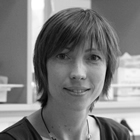 |
| INVITED |
|
 |
| . |
|
|
Cécilia Ménard-Moyon
CNRS, France
Invited – Plenary Session
Dr. Cécilia Ménard-Moyon obtained her PhD in 2005 at CEA/Saclay (France). After a 1-year postdoc at the University of York (UK) and 18 months in industry (Nanocyl, Belgium), she got a permanent position at CNRS in 2008 as researcher in the group of Dr. Alberto Bianco. Her research interests are focused on the functionalization of carbon-based nanomaterials (mainly carbon nanotubes and graphene) for biomedical applications, the self-assembly of amino acid derivatives and peptides, as well as the formation of hydrogels for on-demand drug delivery. She has published more than 80 articles and 9 book chapters.
|
|
|
|
|
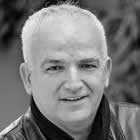 |
| INDUSTRIAL FORUM |
|
 |
| . |
|
|
Arben Merkoci
ICREA-ICN2, Spain
Invited - Industrial Forum
Arben Merkoçi is currently ICREA Professor and director of the Nanobioelectronics & Biosensors Group at Institut Català de Nanociencia i Nanotecnologia (ICN2), a BIST centre situated at Autonomous University of Barcelona (UAB) campus (Bellaterra, Barcelona). After his PhD (1991) at Tirana University, in the topic of Ion-Selective-Electrodes (ISEs) designs and applications in clinical and environmental analysis, Dr. Merkoçi worked as postdoc at other European research centres and USA in the field of nanobiosensors and lab-on-a-chip technologies. His postdoc periods were followed by leading positions in several laboratories: (1997-2006) at Autonomous University of Barcelona and since 2006 in ICN2.
|
|
|
|
|
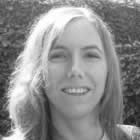 |
| INVITED |
|
 |
| . |
|
|
Christelle Monat
École Centrale de Lyon, France
Invited – Plenary Session
Christelle Monat graduated as a PhD/ engineer from École Centrale de Lyon in 2003. She was appointed Associate Professor at ECL in 2010 after working as a post-doctoral researcher at EPFL (2004-2005) and The University of Sydney (2005-2010). She is part of the Nanophotonics research group at INL, where she focuses on all-optical signal processing on a chip. This includes the use of nanometric periodic structures in order to create a chip-scale integrated photonic platform for routing and processing information, directly in the optical domain, within compact, high-speed devices with low power consumption. She received a European grant GRAPHICS (2015-2020), for studying the use of graphene nonlinear properties for integrated optics, and collaborates with Australian groups within the French-Australian international joint laboratory ALPhFA. She is a full professor at Ecole Centrale de Lyon since 2019 and an associate Editor of APL Photonics since 2015.
|
|
|
|
|
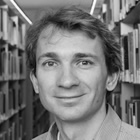 |
| WORKSHOP 3 |
|
 |
| . |
|
|
Yazyev Oleg
EPLF, Switzerland
Invited – Workshop 3: Theory of 2D Materials and Devices Simulation
Prof. Oleg Yazyev was born in Simferopol, Crimean peninsula. He obtained his degree in chemistry from Moscow State University in 2003 and then joined Ecole Polytechnique Fédérale de Lausanne (EPFL) completing his Ph.D. thesis in 2007. He spent the next two years as a postdoctoral fellow at the Institute of Theoretical Physics (ITP) and the Institute for Numerical Research in the Physics of Materials (IRRMA) of the same institution. In 2009-2011 he was a postdoctoral fellow at the Department of Physics of the University of California, Berkeley, and the Lawrence Berkeley National Laboratory. In September 2011 he started an independent research group supported by the Swiss National Science Foundation professorship grant. In 2012 he was awarded an ERC Starting grant. His current research focuses on the theoretical and computational physics of two-dimensional and topological materials with a strong emphasis on their prospective technological applications.
|
|
|
|
|
 |
| INDUSTRIAL FORUM |
|
 |
| . |
|
|
Iwona Pasternak
ENT and WUT, Poland
Invited - Industrial Forum
Iwona Pasternak is an Assistant Professor in Faculty of Physics at Warsaw University of Technology (WUT) where she develops the graphene and other 2D materials growth technology. She received her PhD in Materials Engineering with Honors in 2016. She has been working in the graphene research area since 2011. She is the laureate of the scholarship for outstanding young scientists awarded by the Ministry of Science and Higher Education. She authored and co-authored more than 70 peer-reviewed journal papers and 6 patent applications.
|
|
|
|
|
 |
| INDUSTRIAL FORUM |
|
 |
| . |
|
|
Andrew J. Pollard
National Physical Laboratory, UK
Invited - Industrial Forum
Andrew Pollard is the Science Area Leader of the Surface Technology Group and leads NPL's research into the structural and chemical characterisation of graphene and related 2D materials, with a focus on enabling industrial commercialisation in this area. This metrology research addresses the actual measurement of 2D materials with a range of surface characterisation techniques, such as Raman spectroscopy and tip-enhanced Raman spectroscopy (TERS), scanning probe microscopies (SPM), scanning electron microscopy (SEM), secondary ion mass spectrometry (SIMS) and X-ray photoelectron spectroscopy (XPS).
He is leading international graphene standards within ISO/TC229, including the first published graphene ISO standard on terminology. Andrew is a Visiting Lecturer at the University of Manchester, UK, the co-chair of the VAMAS Technical Working Area 'TWA 41: Graphene and Related 2D Materials' and the recipient of the Royal Society of Chemistry's " 2018 Rising Star in Industry Award" |
|
|
|
|
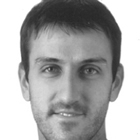 |
| WORKSHOP 6 |
|
 |
| . |
|
|
Vincent Renard
Université Grenoble Alpes / CEA, France
Invited – Workshop 6: Advanced Characterization of 2DM and heterostructures
|
|
|
|
|
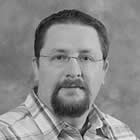 |
| WORKSHOP 1 |
|
 |
| . |
|
|
Joshua A. Robinson
Pennsylvania State University, USA
Invited – Workshop 1: Large scale growth of 2DM and applications
Dr. Robinson obtained his B.S. degree in Physics with minors in Chemistry and Mathematics from Towson University in 2001. He received his doctorate degree from The Pennsylvania State University in Materials Science and Engineering in 2005. From there, he joined the Naval Research Laboratory in Washington D.C. as an NRC Post Doctorate Fellow where he developed highly carbon nanotube devices for detection of explosives and nerve agents. In 2007, Dr. Robinson joined the Penn State Electro-Optics Center as a research associate in the Materials Division and most recently (2012) joined the Penn State Materials Science and Engineering Department as an Assistant Professor. In 2013, he co-founded the Center for Two-Dimensional and Layered Materials, and currently serves as Associate Director of the Center. In July 2015, he became Co-Director of the NSF I/UCRC Center for Atomically Thin Multifunctional Coatings (ATOMIC).
|
|
|
|
|
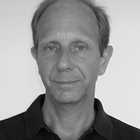 |
| WORKSHOP 5 |
|
 |
| . |
|
|
Marco Romagnoli
CNIT, Italy
Invited – Workshop 5: Advances in hBN growth, characterization and device integration
Marco Romagnoli, Head of Advanced Technologies for Photonic Integration and Chief Scientific Officer at CNIT PNTLab (Photonic Networks and Technologies) in Pisa, contract professor at Scuola Superiore Sant’Anna in Pisa, and former Director in R&D dept. His expertise is in particular in the area of photonic technologies for telecommunications. After a Laurea Degree in Physics at the University of Rome (La Sapienza), in 1983 he started his activity at IBM Research Center in San Jose. In 1984 he joined Fondazione Ugo Bordoni in the Optical Communications Department working on optical components and transmission systems. In 1998 he joined Pirelli. In Pirelli R&D Photonics served as director of Design and Characterization and Chief Scientist. In 2001 he pioneered the activity on Si Photonics and started the development platform for optical components, specifically silica based PLC’s, in SiN and Si.
In Oct 2010 he joined PhotonIC Corp, a Si-Photonics company, as Director of Boston Operations and program manager on behalf of the company at MIT (Massachusetts Institute of Technology) for the development of an optically interconnected multicore processor Si chip. In this period he contributed to the demonstration of the first electrically pumped Germanium laser.
Presently he is involved in the realization of graphene photonics devices and integrated circuits for optical communications and in the development of graphene integration in SOI and SiN on wafer scale platforms. In addition he is leader of the workpackage “wafer scale system integration” and division leader in the EU-Graphene Flagship project.
|
|
|
|
|
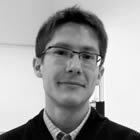 |
| WORKSHOP 4 |
|
 |
| . |
|
|
Benjamin Sacépé
Institut Néel - CNRS, France
Invited – Workshop 4: Topological and Exotic Physics in van Der Waals Heterostructures
|
|
|
|
|
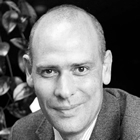 |
| WORKSHOP 2 |
|
 |
| . |
|
|
Paolo Samorì
Université de Strasbourg, France
Invited – Workshop 2: Chemistry of 2DM, Medical and Energy Applications
Paolo Samorì is Distinguished Professor at the Université de Strasbourg, Director of the Institut de Science et d’Ingénierie Supramoléculaires (ISIS) and Director of the Nanochemistry Laboratory. He is also Foreign Member of the Royal Flemish Academy of Belgium for Science and the Arts (KVAB), Fellow of the Royal Society of Chemistry (FRSC), Fellow of the European Academy of Sciences (EURASC), Member of the Academia Europaea and Junior Member of the Institut Universitaire de France (IUF). He obtained a Laurea (master’s degree) in Industrial Chemistry at University of Bologna in 1995. In 2000, he received his PhD in Chemistry from the Humboldt University of Berlin. He was permanent research scientist at Istituto per la Sintesi Organica e la Fotoreattività of the Consiglio Nazionale delle Ricerche of Bologna from 2001 to 2008 and Visiting Professor at ISIS from 2003 to 2008. He has published >350 papers on nanochemistry, supramolecular sciences, materials chemistry, and scanning probe microscopies with a specific focus on graphene and other 2D materials as well as functional organic/polymeric and hybrid nanomaterials for application in optoelectronics, energy and sensing. His work has been awarded various prizes, including the E-MRS Young Scientist Award (1998), the MRS Young Scientist Award (2000), the IUPAC Prize for Young Chemists (2001), the “Vincenzo Caglioti” Award (2006), the “Nicolò Copernico” Award (2009), the “Guy Ourisson” Prize (2010), the ERC Starting Grant (2010), the CNRS Silver Medal (2012), the Spanish-French “Catalán-Sabatier” Prize (2017), the German-French “Georg Wittig - Victor Grignard” Prize (2017), the RSC Surfaces and Interfaces Award (2018), the Blaise Pascal Medal in Materials Science of EURASC (2018), the Pierre Süe Prize of the French Chemical Society (2018), the ERC Advanced Grant (2019) and "Les Étoiles de l’Europe" award - French Ministry of Higher Education, Research and Innovation (2019 ). He is Associate Editor of Nanoscale and Nanoscale Advances (RSC) and Member of the Advisory Boards of Advanced Materials, Small, ChemPhysChem, ChemNanoMat, ChemPlusChem and ChemSystemsChem (Wiley-VCH), Chemical Society Reviews, Chemical Communications, Nanoscale Horizons and Journal of Materials Chemistry (RSC), ACS Nano and ACS Omega (ACS).
|
|
|
|
|
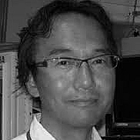 |
| INDUSTRIAL FORUM |
|
 |
| . |
|
|
Shintaro Sato
Fujitsu Laboratories Ltd., Japan
Invited - Industrial Forum
Shintaro Sato received his PhD from the University of Minnesota in 2001. He joined Fujitsu Limited in 2001. He was a group leader in National Institute of Advanced Industrial Science and Technology from 2010 to 2014. He is now Project Director at Fujitsu Laboratories Ltd. and works on research and development of nanoelectronics/quantum devises using nanocarbon and two-dimensional materials.
|
|
|
|
|
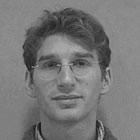 |
| WORKSHOP 5 |
|
 |
| . |
|
|
Pierre Seneor
Université Paris-Sud / CNRS, France
Invited – Workshop 5: Advances in hBN growth, characterization and device integration
|
|
|
|
|
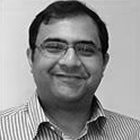 |
| INDUSTRIAL FORUM |
|
 |
| . |
|
|
Ravi Sundaram
Oxford Instruments, UK
Invited - Industrial Forum
Dr Ravi Sundaram is the Head of strategic R&D Markets at Oxford Instruments Nanotechnology tools responsible for leading the market strategy and collaborative R&D activity globally. He has been involved in materials research in several institutions such as EPFL, Switzerland, Max Planck Institute Stuttgart, Germany, IBM T.J Watson Research Labs, NY and Cambridge University where he worked on several aspects of 1D and 2D materials-based research from synthesis, fundamental science to prototype applications in sensors, optoelectronics and electronics. He joined Oxford Instruments to lead and coordinate R&D efforts towards 2D materials products. Currently, he is responsible for strategy and business development in key R&D markets such as 2Dmaterials, biomedical devices, integrated photonics, Quantum Technologies among others.
|
|
|
|
|
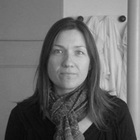 |
| WORKSHOP 5 |
|
 |
| . |
|
|
Bérangère Toury
Université de Lyon, France
Invited – Workshop 5: Advances in hBN growth, characterization and device integration
Dr. Berangere Toury, 46, is Assistant Professor at the University of Lyon. She got her permanent position in 2003 after 2 consecutive post-doctorates at the University of Hull (GB) and at the University Paris VI (FR) and her PhD obtained in 2000, all in chemistry of inorganic materials. Her research activity is focused on the design, the synthesis and the characterization of hBN specific forms, such as fibers, coatings and now graphene analogues by using an original polymer derived ceramics route. She has published more than 60 papers in reputed journals, and she is co-inventor of 7 patterns.
|
|
|
|
|
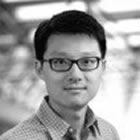 |
| INVITED |
|
 |
| . |
|
|
Adam Wei Tsen
University of Waterloo, Canada
Invited – Plenary Session
Adam Wei Tsen is an assistant professor at the University of Waterloo. His group studies various quantum materials in low dimensions. Tsen completed his PhD at Cornell University under the guidance of Jiwoong Park and did postdoctoral research at Columbia University with Abhay Pasupathy and Philip Kim.
|
|
|
|
|
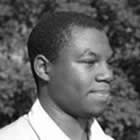 |
| INDUSTRIAL FORUM |
|
 |
| . |
|
|
Honoré Tsotetzo
Graphene Production, France
Invited - Industrial Forum
TSOTETZO Honore received his PhD from the University of Caen in 2017. He worked on «add value to the marine polysaccharide such as chitosan and κ-carrageenan : production of nanocomposites and synthesis of doped graphene ». He joined GRAPHENE PRODUCTION in 2019 as R&D Manager
|
|
|
|
|
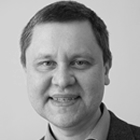 |
| WORKSHOP 2 |
|
 |
| . |
|
|
Andrey Turchanin
Friedrich Schiller University Jena, Germany
Invited – Workshop 2: Chemistry of 2DM, Medical and Energy Applications
Andrey Turchanin studied physics and materials science at the National University ofScience and Technology, Moscow (Ph.D. 1999). In 2000 he moved to the Universityof Karlsruhe with an Alexander von Humboldt Fellowship. 2004-2014 he joined theFaculty of Physics at the University of Bielefeld where he completed hishabilitation in 2010. In 2012 Turchanin was awarded a Heisenberg Fellowship ofthe German Research Foundation (DFG) and in 2013 the Bernhard-Heß-Prize of theUniversity of Regensburg for his research in the field of emerging 2Dmaterials. In 2014 he became a professor of physical chemistry at the FriedrichSchiller University Jena, where he is leading the group of “Applied PhysicalChemistry & Molecular Nanotechnology”. His current research interests arefocused on the materials science of 2D materials and their applications inelectronics, optoelectronics and nanobiotechnology.
|
|
|
|
|
 |
| WORKSHOP 2 |
|
 |
| . |
|
|
Bernhard Urbaszek
Université Toulouse III Paul Sabatier / CNRS, France
Invited – Workshop 2: Chemistry of 2DM, Medical and Energy Applications
Bernhard is a Director of Research at CNRS - Toulouse University. His research is focused on 2D semiconductors, spin and valley physics in nano-structures, optical spectroscopy and quantum dots. He did his PhD and postdoc at Heriot-Watt University, Edinburgh, UK, before moving to Toulouse in 2003.
|
|
|
|
|
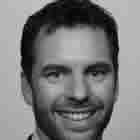 |
| INDUSTRIAL FORUM |
|
 |
| . |
|
|
Richard Van Rijn
Applied Nanolayers B.V., The Netherlands
Invited - Industrial Forum
Richard van Rijn obtained his PhD (2012) and a cum laude MSc (2007) in physics from Leiden University. He performed PhD research in Leiden and at the European Synchrotron Radiation Facility in Grenoble. There he developed and implemented an experimental system for surface X-ray diffraction studies of heterogeneous catalysis and surface chemistry. He is (co-)author of 14 peer reviewed scientific articles in applied physics and physical chemistry. He has attended over 10 research conferences, several as invited speaker. Richard helped to commercialise the SXRD reactor via Leiden probe Microscopy BV. After his PhD, he returned to Leiden to work on scaling up graphene production and shortly after co-founded Applied Nanolayers, where he is currently CTO.
|
|
|
|
|
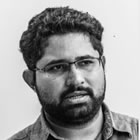 |
| INDUSTRIAL FORUM |
|
 |
| . |
|
|
Aravind Vijayaraghavan
The University of Manchester, UK
Invited - Industrial Forum
Dr. Aravind Vijayaraghavan is a Reader in Nanomaterials in the School of Materials and the National Graphene Institute at The University of Manchester. He leads the Nano-functional Materials Group (www.nanofunc.com) and his research involves the science and technology of graphene and 2-dimensional materials, particularly for applications in composites, sensors and biotechnology. He was previously a post-doctoral research fellow at Massachusetts Institute of Technology, USA and an Alexander von Humboldt Fellow at Karlsruhe Institute of Technology, Germany. He obtained his MEng (2002) and PhD (2006) from Rensselaer Polytechnic Institute, USA and his BTech (2000) from the Indian Institute of Technology - Madras, India. He has published over 80 papers in international peer reviewed journals and delivered over 60 presentations at international conferences. Dr. Vijayaraghavan is also a leader in public engagement and science communication and won the 2013 Joshua Phillips Award for Innovation in Science Engagement and was Science Communicator in Residence at the 2013 Manchester Science Festival. He has also been awarded a Royal Society Pairing Scheme Award (2013) and a British Science Association Media Fellowship (2017). He has delivered over 40 public lectures. He is the founder of two spin-out companies, Grafine Ltd. (www.gra-fine.com) and Atomic Mechanics Ltd. (www.atomic-mechanics.com) which commercialise applications of graphene in the fields of composites and sensors respectively.
|
|
|
|
|
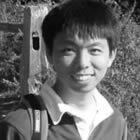 |
| KEYNOTE |
|
 |
| . |
|
|
Feng Wang
University of California Berkeley, USA
Keynote – Plenary Session
|
|
|
|
|
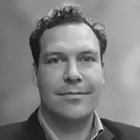 |
| WORKSHOP 6 |
|
 |
| . |
|
|
Jamie Warner
University of Oxford, UK
Invited – Workshop 6: Advanced Characterization of 2DM and heterostructures
|
|
|
|
|
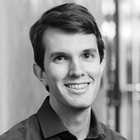 |
| INDUSTRIAL FORUM |
|
 |
| . |
|
|
Johan Ek Weis
SIO Grafen, Sweden
Invited - Industrial Forum
After having been an academic researcher concentrating on graphene and carbon nanotubes for 10 years, Johan shifted focus 5 years ago and is now focusing on helping the industry use graphene to develop new products. Johan works both directly with companies on specific projects developing products, and more strategically with the Swedish national innovation programme SIO Grafen.
|
|
|
|
|
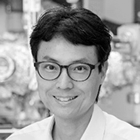 |
| INVITED |
|
 |
| . |
|
|
Hyunsoo Yang
National University of Singapore, Singapore
Invited – Plenary Session
Prof. Hyunsoo Yang is currently a GlobalFoundries Chaired Professor in the Department of Electrical and Computer Engineering, National University of Singapore, working on various magnetic materials and devices for spintronics applications. He obtained the PhD degree from Stanford University. He worked at C&S Technology, Seoul; LG Electronics, San Jose, CA; and Intelligent Fiber Optic Systems, Sunnyvale, CA, USA. From 2004 to 2007, he was at the IBM Almaden Research Center. He has authored 190 journal articles, given 170 invited presentations, and hold 17 patents. Prof. Yang was a recipient of the Outstanding Dissertation Award for 2006 from the American Physical Society (GMAG) and IEEE Distinguished Lecturer of Magnetic Society for 2019.
|
|
|
|
|
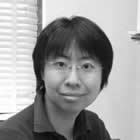 |
| INDUSTRIAL FORUM |
|
 |
| . |
|
|
Shan Zou
National Research Council, Canada
Invited - Industrial Forum
Dr. Zou is a Senior Research Officer and Team Leader for Nanoscale Measurement at the Metrology Research Centre of the National Research Council Canada. She is also an Adjunct Professor in the Department of Chemistry at the Carleton University.
Her research focuses on the development of nanoscale standards and measurement methods that underpin applications of nanoscience; and the development of integrated multimodal techniques for characterization of nanomaterials and quantitative detection of cancer cells and cellular mechanical responses to drug treatments. Dr. Zou has expertise in nanomechanical characterization; cytotoxicity measurements of nanomaterials; and material and surface characterization. She seeks to contribute to a greater understanding of the effects of nanomaterials on the environment and living systems, and to promote the safe and responsible use of nanotechnology tools and nanomaterials.
|
|
|
|
|
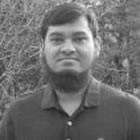 |
| INDUSTRIAL FORUM |
|
 |
| . |
|
|
Ahmad Zubair
MIT, USA
Invited - Industrial Forum
|
|
|
|
|
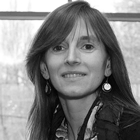 |
| INDUSTRIAL FORUM |
|
 |
| . |
|
|
Amaia Zurutuza
Graphenea, Spain
Invited - Industrial Forum
She received her Ph.D. degree in polymer chemistry from the University of Strathclyde (Glasgow, UK) in 2002. After two Postdoctoral Research Fellowships working in two European projects related to molecularly imprinted polymers. In 2004, she joined Ferring Pharmaceuticals (previously Controlled Therapeutics) where she worked in the research of new controlled drug delivery systems as a Senior Polymer Scientist. Her contribution led to the granting of three patents in novel biodegradable and biostable polymers for the controlled release of active compounds. In 2010, she became the Scientific Director of Graphenea. At Graphenea, she leads the research and development activities on graphene-based materials. Since joining Graphenea, she has so far filed for ten patents and published in Nature and Science.
|
|
|
|
|
| |
|
|
|
|
|
 |
|

